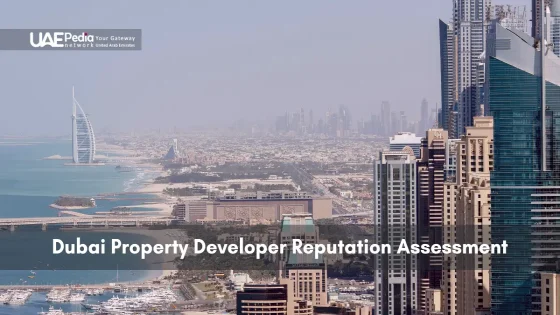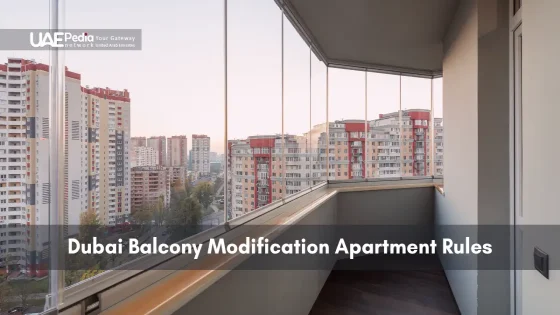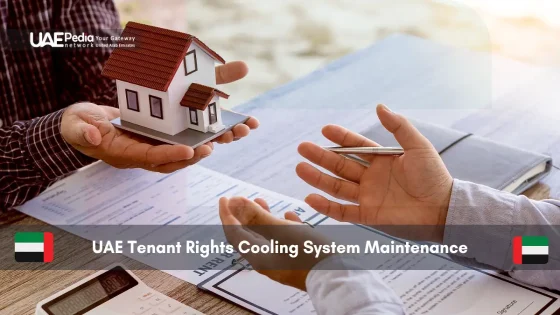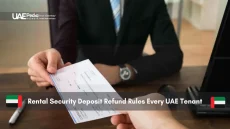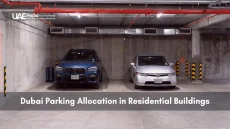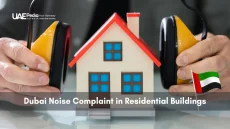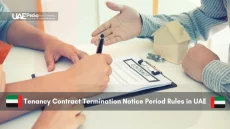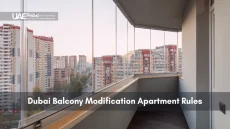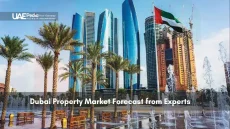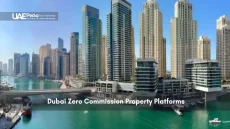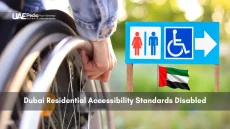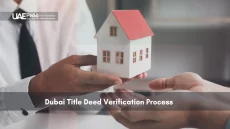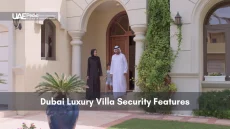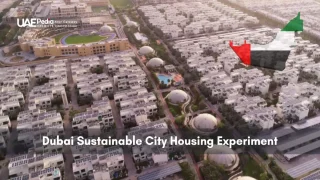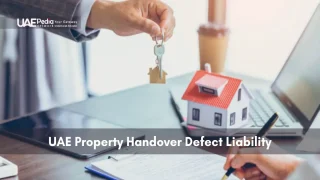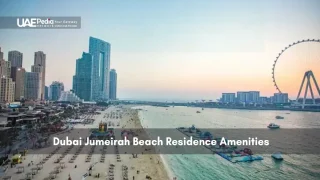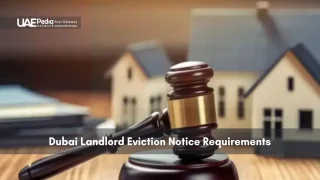Did you know over 36 new investment funds launched in Dubai last year alone? With cranes dotting the horizon and innovative projects reshaping neighborhoods, the city’s growth spurt is undeniable. But here’s the twist: not every gleaming tower delivers on its promises. That’s why savvy investors prioritize verified track records over flashy brochures.
Choosing the right partner for your investment matters more than ever. Entities like the Dubai Land Department ensure developers meet strict standards—from escrow account regulations to transparent payment plans. We’ve seen firsthand how projects backed by real estate funds with strong oversight tend to outperform others in stability and returns.
This guide walks you through the essentials: checking licenses, reviewing completed projects, and understanding client testimonials. Whether you’re drawn to waterfront communities or urban hubs, we’ll help you navigate with local insights and practical steps.
Dubai real estate investments require rigorous verification of developer credentials to mitigate project delivery risks. Investors should confirm active licensing and escrow compliance via the Dubai Land Department and RERA portals, examine ISO/Estidama certifications, and assess completion rates of past developments (90%+ as a benchmark). Financial stability indicators—such as audited profit margins over three years, debt-to-equity ratios below 0.5, and credit ratings of BBB+ or higher—offer quantifiable measures of a developer’s capacity to fund and complete projects on schedule.
Effective reputation assessment blends quantitative data with qualitative insights. Systematically review developer portfolios and customer feedback across platforms like Bayut forums and Google Reviews, conduct live-streamed or in-person site inspections to verify construction quality and amenity maintenance, and monitor complaint histories via digital tools. Key red-flag indicators include vague payment plans, pressure sales tactics, expired licenses, and inconsistent warranty terms. Structured due diligence yields a clear scorecard for informed investment decisions.
Key Takeaways:
- Licensing checks through RERA or DLD are non-negotiable for investor protection
- Past project portfolios reveal more than marketing pitches ever could
- Live-streamed site inspections add transparency to off-plan purchases
The Importance of Verifying Developer Credibility in Dubai
Dubai’s skyline changes faster than your morning coffee order. But here’s the secret: those shiny towers mean nothing if the team behind them lacks proper credentials. Think of licensing like a golden ticket—it’s your first clue that a company plays by the rules.
Start With the Paper Trail
Every legit operator here must have approvals from the Dubai Land Department and RERA. Hop onto their official portal—it takes three clicks to verify licenses. Pro tip: look for ISO certifications too. They’re like bonus points for quality assurance.
One investor told us:
“I almost signed for a beachfront unit until I realized their license expired six months prior. The website looked professional, but the details didn’t add up.”
Beyond the Brochure
Portfolios tell stories brochures can’t. Visit their past projects—do the elevators work? Are common areas maintained? Chat with residents. You’ll learn more in 10 minutes than from any sales pitch.
Watch for vague payment plans or delays in providing contracts. Transparent teams share timelines like friends sharing dessert recipes—clearly and generously. Cross-check Google reviews with forums like Bayut. If multiple sources mention “surprise fees,” walk away.
Affordable apartments in International City and Dubai Investments Park delivered rental yields of 9–11 percent in Q1 2025, underscoring areas with robust returns. Ref.: “Abi Farraj, Y. (2025). Dubai real estate: Strong return on investment hotspots emerge as prices continue rising. Economy Middle East.” [!]
Remember: solid reputations aren’t built overnight. They’re earned through delivered promises and clear communication. Your future self will thank you for doing the homework now.
How to Execute a dubai property developer reputation assessment
Imagine buying a luxury car without checking its engine—that’s what investing in the real estate market feels like when you skip reputation checks. We’ve helped dozens of clients navigate this terrain, and here’s the golden rule: blend hard data with human insights.
Identifying Key Reputation Metrics and Standards
Start by mapping what truly matters. Track records matter more than glossy brochures—look for:
- Completion rates of past projects (90%+ is ideal)
- Number of years listed with RERA
- Awards from Gulf Real Estate Awards or similar bodies
Structural defects can threaten building integrity, and developers’ decennial liability must be enforced to prevent catastrophic failures. Ref.: “Palmer, L. (2024). Developer Liability for Off-Plan Properties in Dubai: Legal Insights. World Arabia.” [!]
One investor shared:
“Comparing two firms’ project timelines revealed delays the sales team ‘forgot’ to mention.”
Utilizing Official Resources and Developer Portfolios
Dubai’s government portals are your best friends. Use the Dubai Land Department website to verify licenses and escrow accounts. Then, dive into portfolios—do their completed buildings have consistent Google reviews above 4 stars?
| Factor Type | What to Check | Tools & Resources |
|---|---|---|
| Quantitative | Financial reports, DLD licenses | Government portals, RERA |
| Qualitative | Customer reviews, project tours | Bayut forums, site visits |
Balance spreadsheets with stories. A firm might have stellar credit ratings but terrible communication—both shape your experience. Pair DLD data with neighborhood visits. Chat with residents at their coffee shops—you’ll get unfiltered truths no brochure provides.
By week’s end, you’ll have a clear scorecard. Trust the process, and your final decision will feel less like a gamble and more like a strategic move.
Read More:
Evaluating Financial Stability and Construction Quality
Numbers don’t lie—especially when they’re printed in annual reports. We’ve found that teams with robust balance sheets and glowing credit ratings tend to build towers that stand the test of time (and desert winds). Let’s break down what matters beyond the blueprints.
Follow the Money Trail
Start with audited financial statements. Look for:
- Consistent profit margins over 3+ years
- Low debt-to-equity ratios (under 0.5 is ideal)
- Moody’s or Fitch ratings of BBB+ or higher
A project manager once told us:
“Developers with strong cash reserves rarely miss deadlines—they’ve got backup generators for their backup plans.”
Materials That Make Sense
Quality isn’t just about marble countertops. Check for:
- LEED or Estidama certifications for sustainability
- Third-party testing reports on concrete mixtures
- 10+ year warranties on structural elements
| Feature | Standard Grade | Premium Grade |
|---|---|---|
| Window Glass | Double-glazed | Low-E, UV-resistant |
| Elevators | Basic safety | Emergency backup + IoT monitoring |
Top-tier firms like Emaar often publish material specs online—compare them across projects. Remember: buildings with superior insulation cut your future AC bills by up to 30%. Now that’s smart investing.
On-Site and Online Verification Practices
Your dream home deserves more than pixel-perfect renders. Think of verification like taste-testing a recipe—you need both hands-on sampling and chef reviews to trust the final dish. Let’s explore how blending boots-on-the-ground checks with digital sleuthing creates confidence.
Inspecting Completed Projects and Amenities
Walking through finished communities reveals truths brochures hide. Check for:
- Consistent paint finishes (no patchy corners)
- Functioning gym equipment and pool filtration systems
- Landscaping that’s thriving, not just surviving
One investor we know visits sites at different times: “Morning visits showed great security. Evening walks revealed broken pathway lights they’d fixed for show.” Chat with residents near mailrooms—they’ll share unfiltered takes on maintenance response times.
Leveraging Reviews from Forums and Social Media
Online feedback acts like a crowd-sourced truth serum. Cross-reference:
| Platform | Best For | Watch For |
|---|---|---|
| Google Reviews | Overall ratings | Generic 5-star comments |
| Bayut Forums | Project-specific discussions | Overly technical jargon |
| Instagram Tags | Visual updates | Filter-heavy perfection |
A resident recently shared:
“The company’s website showed a sparkling lobby. Their Instagram tag had photos of water stains during rainy season—saved me from surprises.”
Bookmark live-streamed walkthroughs for rainy day research. Compare video timestamps with project timelines. Remember: authentic experiences shine through when you mix street-smart visits with digital savvy.
Virtual inspections may miss hidden structural and material defects that require hands-on assessment, limiting their reliability. Ref.: “Matterport Editorial Team. (2024). Virtual Inspection: How Digital Twins Improve Property Evaluations. Matterport.” [!]
Expert Insights and Recognizing Red Flags
Smart investors know secrets hide in plain sight—if you know where to look. Think of due diligence like a treasure hunt: seasoned guides and sharp instincts help separate fool’s gold from genuine gems. Let’s map your toolkit.
Your Personal Advisory Squad
Top-tier real estate agents and legal counsel act as your human GPS. Ask them:
- “Can you walk me through three similar projects you’ve vetted recently?”
- “What clauses in the contract protect against delays?”
A lawyer we trust shared:
“Developers with nothing to hide welcome third-party reviews. If they bristle at your questions, that’s your first exit sign.”
Spotting Smoke Before the Fire
Pressure tactics often mask weak foundations. Watch for:
| Red Flags | Green Flags |
|---|---|
| “Sign today or lose the discount!” | Flexible viewing schedules |
| Vague license copies | DLD registration numbers in emails |
One buyer recounted: “They promised moonlit pools but couldn’t explain drainage plans. Our inspector found flawed blueprints—saved us six figures.”
Remember: quality construction speaks through details. Check if their last five clients would rehire them. Glossy renders fade; delivered homes don’t.
Utilizing Digital Tools and Government Resources
Tech-savvy investors know: the right digital tools turn hours of research into minutes of clarity. Gone are the days of waiting for mailed documents or chasing paper trails. Today’s verification process blends official databases with smart analytics—and we’ll show you how to master both.
Your Digital Detective Kit
Start with the Dubai Land Department portal—your one-stop shop for licenses, escrow accounts, and project approvals. Here’s how to navigate it like a pro:
- Visit the official website and click “Developer Services”
- Enter the company name or license number in the search bar
- Check for active status, registered escrow accounts, and complaint history
One investor shared:
“I discovered three unresolved complaints against a developer within minutes—saved me from a risky deal.”
| Manual Checks | Digital Advantages |
|---|---|
| Office visits | 24/7 access via website |
| Paper records | Real-time updates |
| Phone follow-ups | Live-streamed site tours |
Pro tip: Bookmark the portal’s title deed verification page for quick cross-referencing. Digital tools also let you track market trends—compare a developer’s project timeline with local real estate growth rates. If their launches align with infrastructure upgrades, that’s a green flag.
Always blend online data with boots-on-the-ground insights. Schedule site visits after reviewing digital blueprints. Watch for consistency between virtual promises and physical progress. When screens and streets agree, you’ve found your match.
Wrapping Up Your Developer Evaluation in Dubai
Navigating real estate opportunities requires both a compass and a checklist. You’ve now got the tools to verify licenses through official portals, analyze financial health, and inspect construction quality firsthand. Blend spreadsheets with stories—credit ratings matter, but so do coffee-shop chats with current residents.
Your next move? Start with the track record. Review completed communities at different times of day. Cross-reference digital blueprints with live-streamed site tours. Trust teams that welcome tough questions about payment plans and material specs.
Remember: smart investment decisions balance numbers with nuance. Pair DLD license checks with forum deep-dives. Consult local experts who’ve vetted multiple projects—their insights often reveal what brochures omit.
Ready to take action? Bookmark the Land Department portal for quick verifications. Then, connect with seasoned advisors through uaepedia.net for personalized guidance. Your ideal partner isn’t just building towers—they’re crafting communities that stand the test of time.
Check the Dubai Land Department’s official portal – every legitimate developer displays their RERA registration number. You’ll also find verified project licenses and complaint histories through their Ejari system.
Visit completed projects at different times – mornings reveal noise levels, evenings show lighting and security. Inspect finishes, ask residents about maintenance responsiveness, and look for DLD’s Golden Visa certification for sustainability standards.
Cross-reference platforms like Bayut discussions with Google Business profiles. Genuine reviews often mention specific staff names or construction milestones. Watch for repeated complaints about permit delays or payment plans – those are major red flags.
Reputable firms share escrow account statements, audit summaries, and project insurance certificates. If they hesitate to show bank guarantees or liquidity ratios, consider it a warning sign – Dubai’s Real Estate Regulatory Agency mandates this transparency.
Their Oqood system tracks off-plan payments in real-time, while the Trakheesi portal verifies broker credentials. For disputes, the Rental Dispute Center resolves issues within 14 days – always check a developer’s DLD case history before committing.
Look beyond pools and gyms – check fiber-optic readiness, EV charging stations, and accessibility features. Top developers partner with brands like DEWA for smart meters and include climate-resilient materials in common areas.
Prioritize firms with 5+ delivered projects across market cycles. Newer developers can be viable if they have clear parent-company backing – like Emaar’s subsidiaries – and phased payment plans aligned with construction milestones.
